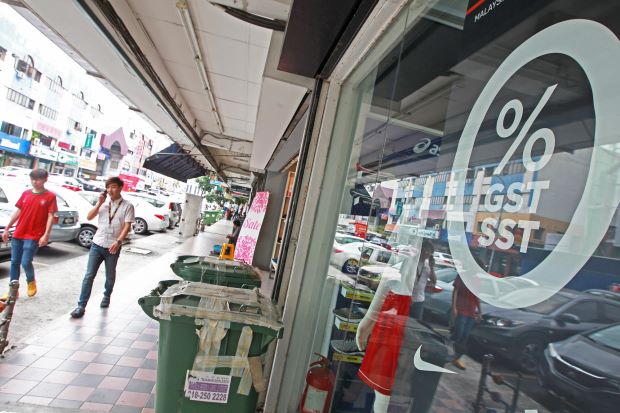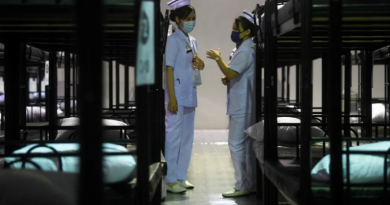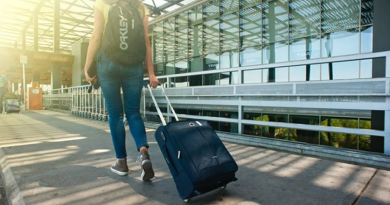So how will SST affect Malaysians? RM26 monthly for the average Malaysian
PETALING JAYA: Reality kicks in this Saturday. The three-month tax holiday is coming to an end when the Sales and Service Tax starts next month.
So how will SST affect Malaysians?
Take, for example, a common Malaysian family – a husband and wife, and their two kids.
The normal household will usually have a television broadcasting service at around RM150 monthly, a data plan of RM60 for each of the husband and wife, a high-speed Internet connection at RM130 and say, two credit cards each.
Judging by feedback from consumer and industry association heads, they feel the SST will have less of a bite on the pockets of consumers than the Goods and Services Tax (GST).
For starters, it is highly unlikely for consumers to be paying service tax for electricity usage unless they leave their air-conditioners on the whole day. According to the guide on electricity services published on the Customs Department’s SST website, service tax will not be imposed for the first 600 kWh for a minimum 28 days per billing cycle.
This differs from the GST regime where it is only zero-rated for the first 300 kWh.
Meanwhile, the guide on proposed sales tax rates uploaded on the SST website on Sunday showed that items such as milk powder, baby diaper rash cream and baby stroller were exempted.
However, items such as baby powder and baby shampoo have a 10% SST. Also exempted are infant food based on cereals, milk, soy and for lactase deficiency.
Rice, vermicelli, flour, sugar and snacks are also on the exempt list, including Malaysians’ all-time favourite – instant noodles and malt drinks with cocoa.
Items that will have a 10% Sales Tax imposed on them are candy, chocolate, talcum powder, hair shampoo, body shampoo, toothpaste, dish soap, toothpicks, tissue, toilet paper and motorcycle helmet among others.
Items with 5% Sales Tax are butter, almond, walnut, biscuit, curry paste, flavouring for fried rice and noodles.
Customs director-general Datuk Seri Subromaniam Tholasy said the proposed list of Sales Tax rates for some goods were not meant to be the comprehensive list of goods in the market.
He clarified that the published list showed only the most common items used by Malaysians, when asked why certain items such as coffins and condoms – which were included previously – did not appear in the updated list.
“The list is a proposed guideline only, not an exhaustive list,” he said.
He, however, said coffins and caskets made from wood were expected to be exempted from the sales tax.
Meanwhile, he said the final list for the Sales Tax rates was expected to be confirmed in two days.
“I do not expect major changes to the proposed list,” he said at the launch of Ops Bimbing SST to help businesses transition to SST.
About 3,000 Customs officials would be stationed throughout the country from Aug 27 to Sept 7 to help the 79,618 businesses registered under the SST, he said.
He urged some 5,000 companies who had yet to register under the SST tax regime to do so by this week.
“All you need is 10 minutes,” he said, adding that the Customs Department was first adopting a “soft approach” for businesses to switch to the SST.
Federation of Malaysian Consumers Associations CEO Datuk Dr Paul Selvaraj said food and household items would affect consumers the most.
“These are items commonly used, especially by the low-income and middle-income households.
“The SST, however, puts more spending power in the hands of the consumers,” he said.
Malaysian Retail Chain Association president Datuk Seri Garry Chua said the SST implementation was fully supported by the MRCA.
Although the confirmed list is yet to be available, Chua said retailers were prepared because the revisions and processes were simpler compared with GST.
“It is good that the government also removed tax on baby products and healthcare.
“We also feel good and positive that only food and beverage outlets with a threshold exceeding RM1mil are subjected to SST so smaller outlets especially mamak restaurants and hawker stalls will maintain their prices for lower and middle income citizens,” he said.
Meanwhile, Kuala Lumpur Chinese Assembly Hall president Datuk Seri K.K. Chai said the SST would give the people higher spending power.
“The GST regime collects around RM40bil annually compared to RM20bil from the SST. That’s money flowing back to society.
“And based on what we have seen over the past three months, there was more business activity due to the higher spending power from the tax holiday period,” he said.
As for businesses, Chai said the SST was a straightforward method as selling prices would be based on the mark-up of the purchasing price, which would already include SST from the manufacturer.
SST is imposed on output stage only, making it a single stage tax. Businesses cannot recover the tax paid on their purchases and this is treated as a cost to business.
GST, on the other hand, is a multi-layered tax regime, with a rate of 6% levied at every stage of the supply chain from manufacturers to distributors to retailers and to consumers.
Businesses can make claims for GST refund from the government.
Source : TheStar




